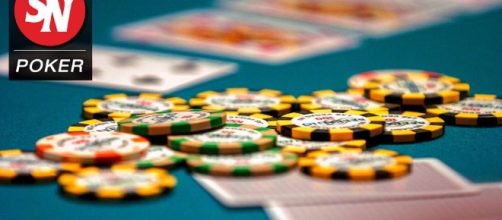Playing Poker for a living is hard. It requires a lot of studying and a lot of work to become successful. And poker requires a ton of hours as well. But there's another aspect of poker which makes it even harder to play. And that aspect is the moral one of it.
Professional Poker Player.
As a pro, what is your job exactly? Professionals don't earn money from a job, they take money from other people who are playing the game. And there's an argument that these pros are taking money away from degenerate gamblers who have serious problems. And those degenerates go home at night with less money in their bank account and even more problems if they have a family at home.
As a professional, you feast on players less skilled than you like this. It's how you make money. But is it morally okay to do so? That's a question that every professional is forced to face. And sure, there are some people in casinos who are just there to have a little bit of fun playing casual poker. And taking money from these people, especially if they are business people just trying to blow off steam, can't hurt them too much. But when someone loses that last $100, the professional can't feel too good about himself.
Value to Society?
And then there's a question of what value poker provides to society. The casino, which operates like a business, is guaranteed to make money in every poker hand.
But the professionals? What value are they providing? An argument can be made that certain players offer entertainment value to the game, but is that really helping society?
Couldn't someone contribute more to the value of society without taking funds from others for a living? The alternative for a poker player is a standard office job that offers less freedom and flexibility, but perhaps offers more fulfillment than the game of poker.
The Grind.
In poker, players face a grind almost every single day trying to increase the amount of money in their bankroll. Is that really what life is all about? Sometimes, professionals get so caught up in The Grind of their career that they spend all their time on the game. This can lead to broken relationships, a lack of professional development, and an uncertain future.
Future.
As a professional, you do have some advantages. The freedom of your own work schedule and the ability to play the game you love for a living. But there are certainly drawbacks and poker players face difficult moral issues every single day. Before really making the decision to become a professional, consider this: Is it really worth taking money from others just to finance your own personal freedom and success?

